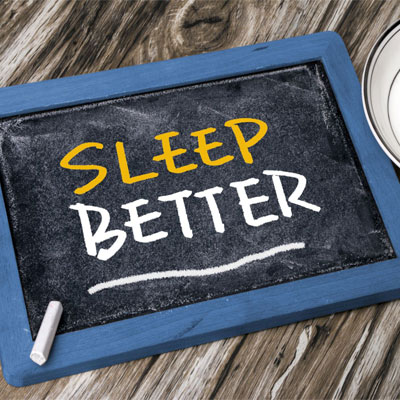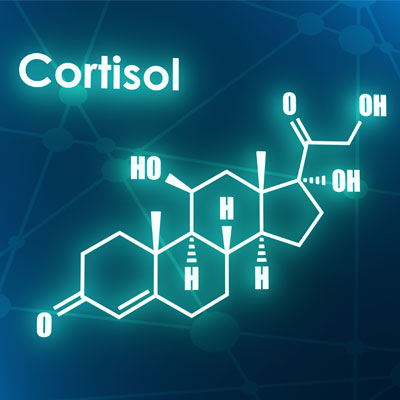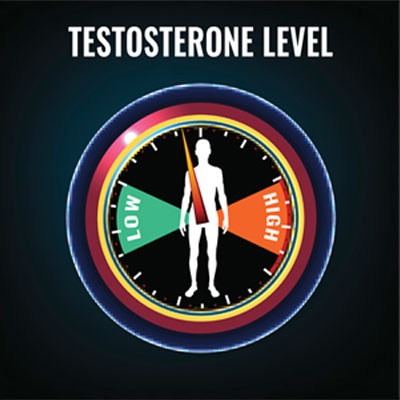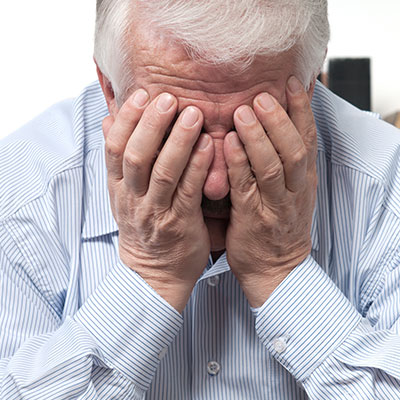Sleep Quality and Testosterone Levels as You Age
Contents
- Low Testosterone, Poor Sleep, and Obstructive Sleep Apnea
- How Does Sleep Affect Testosterone?
- What Is the Relationship Between Sleep and Testosterone Levels?
- Why Do You Sleep Less When Testosterone Levels Decline?
- Can Testosterone Therapy Improve Sleep Quality?
- Tips for a Good Night’s Sleep for Men With Low Testosterone
- What Does the Medical Research Have to Say About Testosterone and Sleep?
- Conclusion
There is ongoing research that indicates a connection between poor or disturbed sleep and a drop in testosterone levels. There is also evidence that the reverse is true — men with low testosterone tend to suffer from sleep disorders.
Most men think that once you are over 40, sleep deprivation is just part of the normal part of the aging process. Between working full days at the office, dealing with budgeting, and the everyday stressors of raising a family, it is not uncommon for men to have trouble sleeping and feel fatigued and exhausted throughout the day.
However, sleep deprivation is a serious condition that men should not ignore, and in fact, current research seems to indicate that chronic poor or disturbed sleep may be a sign of low testosterone.
According to the National Sleep Foundation, adults in their late 20s and early 60s should average 7 to 9 hours of undisturbed sleep per night. If you’re falling well below this range, you may have an imbalance of hormone production which can lead to low testosterone.
Studies have also found that the link between sleep and testosterone goes both ways, which means that one of the symptoms of low testosterone is poor or disturbed sleep.
Low Testosterone, Poor Sleep, and Obstructive Sleep Apnea
Much of the relationship between testosterone and poor sleep has to do with the hormone connection to a common condition known as obstructive sleep apnea, or OSA. OSA is more commonly simply referred to as “sleep apnea.”
OSA is a condition where you stop breathing for brief intervals during the night. The condition is marked by loud snoring, which occurs as the person with sleep apnea gasps for air. Sleep apnea is more common in men than women. It is also more common in men who are overweight.
The link between restful sleep and testosterone has been long known. We know that testosterone production rises during sleep. In particular, testosterone levels increase during deep or REM sleep.
Men with sleep apnea are awakened so often during the night that they miss out on critical periods of REM sleep. That lack of deep sleep inhibits testosterone production and can lead to low T. In addition, according to Rowena A. DeSouza, MD, a sleep researcher with the University of Texas Health Science Center at Houston, “The link actually goes both ways. Low testosterone can cause sleep disturbance, and sleep disturbance can cause low testosterone. It can become a vicious cycle.”
So how does disturbed sleep lead to Low-T? It is not only that lack of sleep interferes with normal testosterone production; poor sleep, as happens in men with OSA, also raises the stress hormone cortisol. We, in the practice of hormone optimization, know that cortisol is a testosterone killer! Cortisol as a testosterone antagonist. The higher your cortisol level, the lower your testosterone level will be.
How Does Sleep Affect Testosterone?
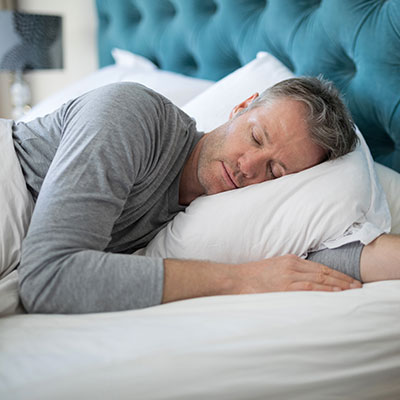
Then, as your testosterone level drops due to poor sleep, low testosterone also appears to be linked to lower quality sleep and fewer deep sleep cycles. This becomes a kind of vicious cycle of poor sleep leading to low T and low T leading to more disturbed sleep.
What Is the Relationship Between Sleep and Testosterone Levels?
Medical science has shown that peak testosterone production occurs during your sleeping hours – particularly during your hours of REM or deep sleep. So if you’re losing sleep, you’re also depriving yourself of your body’s most important testosterone production time.
Interestingly enough, the relationship seems to work both ways. Several studies have also shown that sleep deprivation not only lowers your testosterone it also appears that low testosterone can contribute to insomnia.
Why Do You Sleep Less When Testosterone Levels Decline?
They are a number of reasons why low testosterone can cause disruption of normal sleep patterns. One of the main reasons that low T can cause sleep difficulties is because it causes cortisol levels to rise.
When you have higher cortisol levels, it becomes increasingly difficult to fall asleep—tossing and turning affect both your sleep quality and testosterone levels. As your testosterone production declines, so does your energy. You eat more to compensate, which leads to weight gain. Significant weight gain can lead to sleep apnea, which can start the whole vicious cycle of poor sleep/low testosterone over and over again.
Can Testosterone Therapy Improve Sleep Quality?
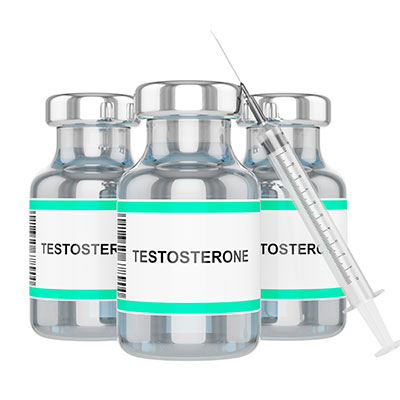
One of the known yet perhaps understated benefits of testosterone replacement therapy is improved sleep. We know that for men with low testosterone, testosterone therapy improves sexual function, helps to build muscle, and renews strength and energy. One of the other well-documented benefits of testosterone replacement is it helps men who have been having trouble sleeping due to low T.
In some ways, this is indeed the most important benefit of testosterone replacement for men with low T. After all, without the benefit of a good night’s sleep, you would not have the strength, energy, nor emotional well-being to enjoy the other benefits that you can achieve with testosterone replacement therapy.
Tips for a Good Night’s Sleep for Men With Low Testosterone
Here are some tips to help anyone get a better night’s sleep. These tips are especially important for men who are known to have low testosterone.
- Get consistent sleep – The National Sleep Foundation (NSF) stresses the importance of getting the same amount of sleep every night. One way to do this is to stick to the same bedtime and wakeup time every day, weekdays, and weekends alike.
- Avoid afternoon naps – This can interrupt your nighttime sleep schedule.
- Keep your bedroom cool – In general, your bedroom should be between 60 and 67 degrees when you’re trying to sleep.
- Remove distractions – Get rid of excess noise and light so that your room is quiet, calm, and dark for sleep.
- Limit nicotine, caffeine, and alcohol – Nicotine and caffeine are stimulants, and although alcohol may feel sedating, it ultimately interferes with sleep quality, according to the NSF.
- Avoid electronic screens for an hour before going to bed – Take a break from your phone, laptop, tablet, and television.
- See a doctor about sleep problems – Sleep apnea is among the treatable conditions that could be interrupting your sleep. Talk with your doctor about whether you should be tested for this condition.
- Lose weight. According to a study in the March 2015 issue of the journal Obesity, losing just 5 percent of your starting weight can result in improved length of sleep and sleep quality,
- Be active. – The NSF emphasizes daily physical activity for better sleep. Try to spend some of your active time outdoors, in a natural green space. Spending time outside seems to help protect against sleep problems.
What Does the Medical Research Have to Say About Testosterone and Sleep?
A landmark study on the relationship between sleep and incidence of low testosterone was published in 2011 in the Trusted sourceEffect of 1 Week of Sleep Restriction on Testosterone Levels in MenNCBIGo to sourceJournal of the American Medical Association (JAMA). The study was designed to look at the impact of one week of sleep restriction on testosterone levels in otherwise healthy, young men.
The study found that their daytime testosterone levels decreased by 10 to 15 percent. The lowest testosterone levels were in the afternoon and evening. The study also found a progressive loss of energy over the week of sleep deprivation.
A follow-up Trusted sourceThe relationship between sleep disorders and testosterone in menNCBIGo to sourcestudy in 2014, this one published in The Asian Journal of Andrology, concluded that “Various disorders of sleep including abnormalities of sleep quality, duration, circadian rhythm disruption, and sleep-disordered breathing result in a reduction in testosterone levels.” The study further found that testosterone replacement therapy does not exacerbate obstructive sleep apnea and that “Low testosterone affects overall sleep quality which is improved by replacement doses.”
A 2015 study published in the journal Trusted sourceMetabolic and hormonal effects of 'catch-up' sleep in menPubmedGo to sourceClinical Endocrinology found that in men who were experiencing stress or “lifestyle” related sleep loss, three days of “catch-up” sleep was able to raise their testosterone levels.
Conclusion
There is a complex relationship between sleep and testosterone, with poor sleep leading to low testosterone and low testosterone impacting sleep quality. Therefore, taking steps to get better sleep will help to maintain healthy testosterone levels, and maintaining healthy testosterone levels can produce better quality and more restful sleep.
Now that you know a little bit more about the relationships between testosterone levels and sleep, why don’t you take a minute to contact us and learn more about testosterone and your other critical hormones?
FAQ
1. How Much Sleep Should Adults Get Per Night?
Scientific research makes clear that sleep is essential at any age. Sleep powers the mind, restores the body and fortifies virtually every system in the body.
According to the CDC and National Sleep Foundation guidelines, healthy adults need between 7 and 9 hours of sleep per night. Babies, young children, and teens need even more sleep to enable their growth and development. People over 65 should also get 7 to 8 hours per night.
2. What Is a Sleep Disorder?
Sleep disorders are conditions that result in changes in the way that you sleep. A sleep disorder can affect your overall health, safety, and quality of life. Sleep disorders result in daytime distress and impairment in functioning. Sleep-wake disorders often occur along with medical conditions or other mental health conditions, such as depression, anxiety, or cognitive disorders. Lack of sleep caused by a sleep disorder can also impact your levels of critical hormones such as testosterone and human growth hormone.
3. Why Is Sleep So Important?
Here are a few more reasons why getting enough sleep is essential to good health.
- Sleep improves heart health.
- Enough sleep may help to prevent certain types of cancer.
- Sleep reduces stress.
- Sleep can reduce system inflammation.
- Adequate sleep improves focus and cognition.
- Sleep improves memory.
- Getting enough sleep improves job performance.
- Sleep can help you lose weight.
- Sleep reduces depression and anxiety.
4. What Is the Link Between Sleep and Testosterone?
Studies have shown that disturbed sleep or a general lack of enough sleep time does contribute to low testosterone in older men. Studies also have shown that sleep disturbances caused by sleep apnea — a chronic breathing disturbance that occurs during sleep — are also linked to low testosterone.
5. Does Testosterone Replacement Therapy Improve Sleep?
There is significant current research that shows a link between low testosterone and poor sleep. These same studies indicate that increasing testosterone in men with low T improves sleep. Poor or disturbed sleep is definitely one of the symptoms of age-related testosterone decline, and in our own practice, one of the many benefits of testosterone therapy reported by our patients is improved sleep.
- Elizabeth Barrett-Connor, MD, Thuy-Tien Dam, MD, Dr. Katie L. Stone, PhD, Stephanie Litwack Harrison, MPH, Susan Redline, MD, MPH, Eric Smith Orwoll, MD, FACP
- Sung-dong Kim, Kyu-Sup Cho, MD, PhD
- Robert E. Sandblom, MD, Alvin M. Matsumoto, MD, Robert B. Schoene, MD, Kathryn A. Lee, Elizabeth C. Giblin, William J. Bremner, MD, PhD, David J. Pierson, MD.
- Peter Y. Liu, Brendon Yee, Susan M. Wishart, Mark Jimenez, Dae Gun Jung, Ronald R. Grunstein, David J. Handelsman
- Madeline R. Vann, MPH; Medically Reviewed by Judy Mouchawar, MD, MSPH
- Mahmoud Suleiman Abu-Samak, PhD, Beisan Ali Mohammad, PhD, May Ibrahim Abu-Taha, PhD, Luai Zidan Hasoun, PhD, Shady Helmi Awwad, PhD
The Association of Testosterone Levels with Overall Sleep Quality, Sleep Architecture, and Sleep-Disordered Breathing
Obstructive Sleep Apnea and Testosterone Deficiency
Obstructive Sleep Apnea Syndrome Induced by Testosterone Administration
The Short-Term Effects of High-Dose Testosterone on Sleep, Breathing, and Function in Older Men
Associations Between Sleep Deprivation and Salivary Testosterone Levels in Male University Students: A Prospective Cohort Study

